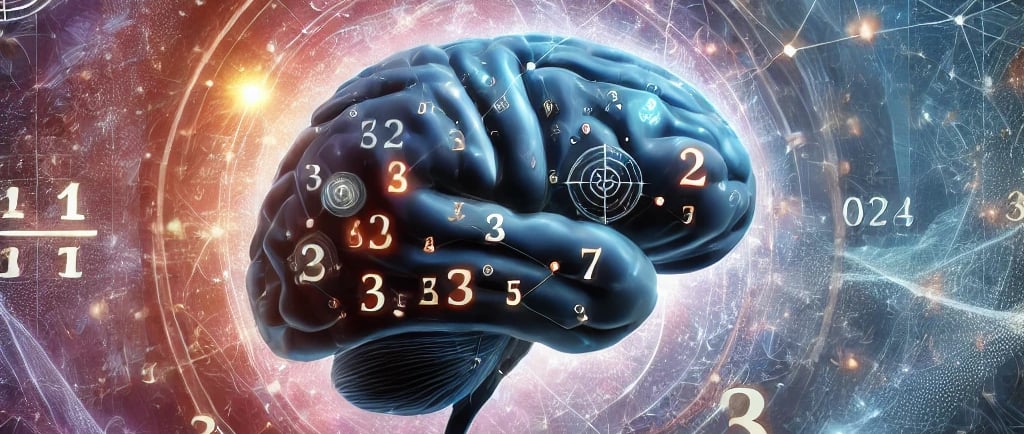Numerical Cognition and Its Impact on Learning Abilities
Numerical cognition, the ability to process and understand numbers, is a fundamental skill that shapes learning and intelligence. This article explores how numerical understanding develops, its impact on education, and ways to enhance numerical cognition for better learning outcomes.
1/27/20251 min read


Early Numerical Development
Children begin developing numerical cognition at an early age. Even infants can distinguish between different quantities, laying the foundation for later mathematical abilities. Studies show that early numerical competence is strongly linked to academic success in mathematics and other subjects.
The Brain and Numerical Processing
Neuroscientific research has identified specific brain regions involved in numerical cognition, particularly the intraparietal sulcus (IPS). This area is responsible for processing numerical magnitudes and performing arithmetic calculations. Deficiencies in these brain regions can lead to dyscalculia, a learning disorder that affects numerical understanding.
How Numerical Cognition Affects Learning
A strong numerical foundation enhances problem-solving abilities, logical reasoning, and even decision-making skills. Studies have shown that students with high numerical competence perform better in science, technology, engineering, and mathematics (STEM) fields.
Conversely, poor numerical cognition can hinder academic progress and limit career opportunities. Educational strategies such as visual representations, interactive learning, and gamification have been shown to improve numerical understanding and retention.
Strategies to Enhance Numerical Cognition
Engage in Mental Math: Practicing arithmetic without a calculator strengthens numerical intuition.
Use Visual Aids: Number lines, graphs, and charts help conceptualize numerical relationships.
Play Numerical Games: Sudoku, chess, and logic puzzles enhance cognitive flexibility.
Encourage Hands-On Learning: Physical objects like counting beads or abacuses improve numerical comprehension in young learners.
By fostering strong numerical cognition from an early age, individuals can develop critical thinking skills and improve their overall learning abilities, making them more adept at navigating both academic and real-world challenges.
